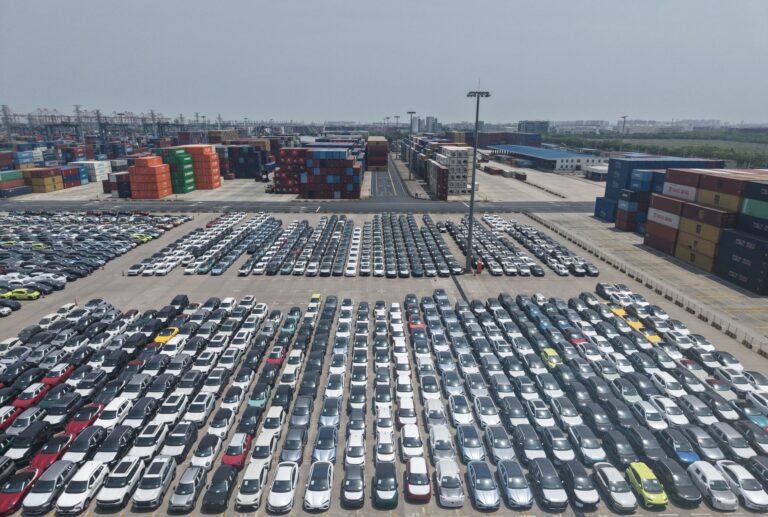The federal government is pitching a “sovereign cloud” as the next frontier of nation building.
However in digital systems, sovereignty is not about building server farms. It is about who controls access, who holds the keys and who can say no when foreign governments or malicious actors try to access the data. If not done right, Canada risks spending billions chasing symbols without having any real positive impact on actual sovereignty.
The right approach is to build sovereignty into contracts and cryptography, not concrete. Canada should treat control over data the way it treats control over defence technology: through enforceable procurement rules, Canadian-cleared personnel and encryption systems where only Ottawa holds the keys.
True digital sovereignty means setting the terms of access and accountability within global systems, not walling ourselves off from them.
If Ottawa’s goal is control over Canadian data and its security, the right levers are procurement standards, contractual requirements and encryption. The government already relies on these to enforce control in other sensitive sectors.
Defence contracts stipulate who can access classified material while telecom procurement requires Canadian-cleared personnel for certain network operations. These are readily available tools that deliver enforceable control without needing to reinvent the global cloud industry.
If instead the goal is economic development, then the question is whether scarce dollars are better spent replicating existing technology or investing in research and development (R&D) that will allow Canada to compete in areas such as artificial intelligence (AI), quantum and cybersecurity.
If sovereignty simply meant duplicating every foreign digital platform, why not build Canadian search engines and operating systems? But this is not sovereignty. It is isolationism. No one argues for this approach because it would be ruinously expensive and strategically pointless.
Cloud is no different. Simply copying American tech companies will not help Canadian firms scale or win global customers.
Trying to fuse these two goals into a single initiative isn’t killing two birds with one stone. It risks missing both entirely, resulting in weaker security at higher cost, with no real industrial payoff.
Server location is not sovereignty
Some insist sovereignty means mandating that all Canadian data be physically stored on servers in Canada. If the machines sit in Toronto instead of California, then Canada is sovereign, the logic goes.
But server location does not create sovereignty. Under the U.S. CLOUD Act, American courts can compel Canadian firms with operations in the United States to provide access to data they control – and one would be hard-pressed to find a Canadian firm that does not, or is not planning to, do business in the United States.
Therefore, a Canadian server does not assure data sovereignty better than a California server.
Instead, better security and control come from procurement rules that require Canadian-cleared personnel for sensitive workloads, encryption that keeps keys in Canadian hands and monitoring to enforce access rules. A rack of servers without those safeguards is symbolism, not sovereignty.
Scale, cost and the security gap
Another common claim is that Canada can build a competitive alternative to global hyperscalers. But the scale mismatch is impossible to ignore. The largest providers individually invest more into R&D than Ottawa’s entire science and technology budget.
Matching that level of spend would mean diverting resources from health care, defence or clean energy just to stand still. A Canadian-only cloud would not just be expensive, it would lag on features, standards and interoperability. Replication wastes money Canada should be putting into areas where it can lead.
Mandating Canadian-only clouds or strict data localization would splinter the very efficiencies that make cloud computing valuable. Global platforms are cost-effective because they operate at enormous scale. Forcing workloads into smaller, siloed systems strips away that advantage.
Such a mandate would result in higher compliance costs, reduced interoperability across borders and extra burdens on small and medium enterprises, and other firms that would need to duplicate IT systems or settle for weaker providers. Even the federal government quietly acknowledged in its own cloud sovereignty paper that rigid localization risks narrowing the range of available solutions.
There is also the security question. Smaller Canadian-only providers would face many of the same weaknesses seen in on-premises systems: limited visibility into global threats, fewer resources for real-time monitoring and slower patching.
That’s why recent breaches at Global Affairs Canada and the Canada Revenue Agency, which compromised the accounts of 11,200 Canadians, hit small-scale, stand-alone, on-premise systems, not global cloud platforms.
Scale matters in cybersecurity. Hyperscalers invest heavily in cyber defence and attract top talent because they defend millions of customers at once. A boutique sovereign cloud would be more expensive and almost certainly less secure.
Sovereignty by design, not by duplication
The lessons from abroad are abundantly clear. While some initiatives in Europe began with ambitions to build new homegrown cloud platforms, most governments have found that real sovereignty comes from partnerships with global providers that guarantee domestic control.
Gaia-X, once pitched as a “European cloud,” recognized that replication was financially untenable and strategically ineffective, so retreated to a narrower focus on interoperability and governance.
Canada’s health data is flowing abroad while Ottawa stalls on AI rules
AI threatens Indigenous data sovereignty and digital self-determination
Instead, Europe has built trusted-partner frameworks that put local entities under domestic law. The U.K. Ministry of Defence, for example, recently signed a sovereign cloud contract, staffed and governed entirely under U.K. law. These are sovereignty-by-design solutions that set the rules, keep control of access and still leverage the best global technology.
Canada should take the same path. If the objective is control and security, use procurement to hardwire it into contracts. If the objective is industrial policy, then say so and debate whether cloud is really the best focus when Canada has more promising bets in AI, quantum and cybersecurity.
What Ottawa should avoid is muddling the two by pursuing sovereignty through a costly exercise in replication that delivers neither security nor economic advantage.
Canada does not need its own cloud to be sovereign. It needs enforceable rules, Canadian-controlled access and smart procurement. Real sovereignty is about control and leverage, not the logo on the server rack.












